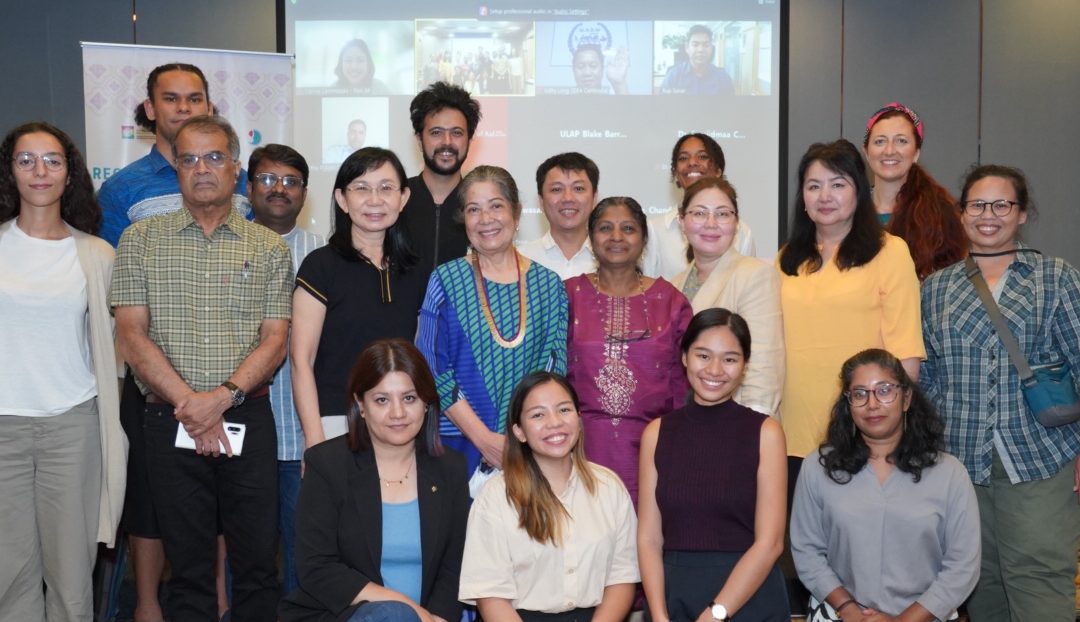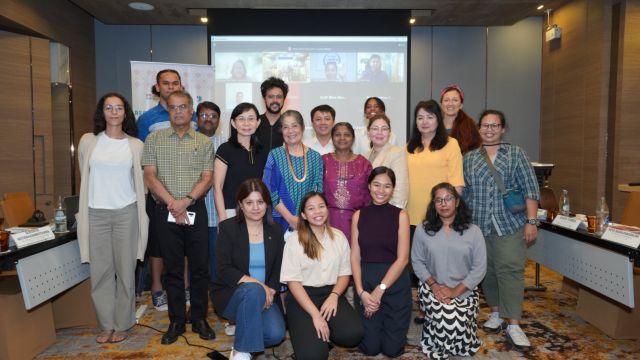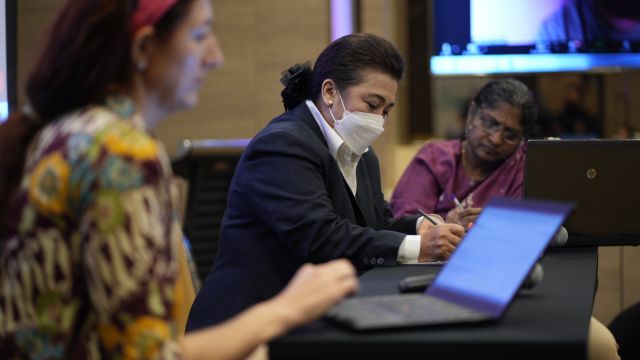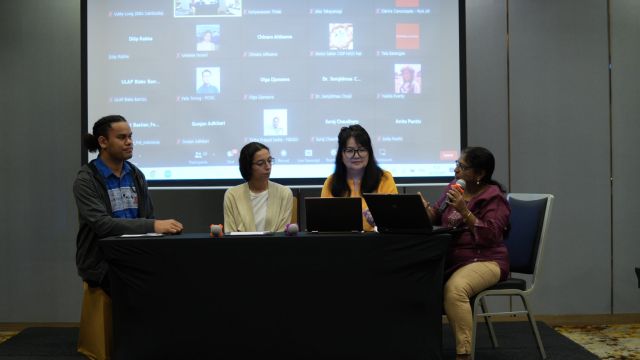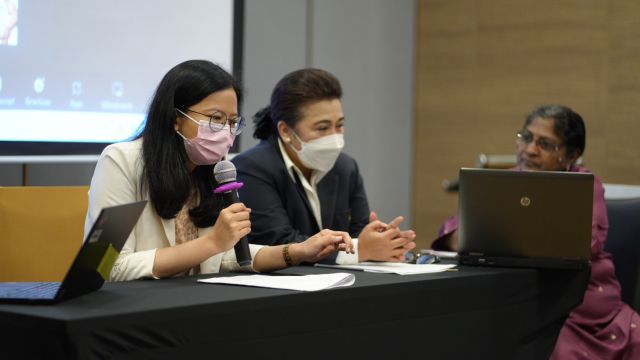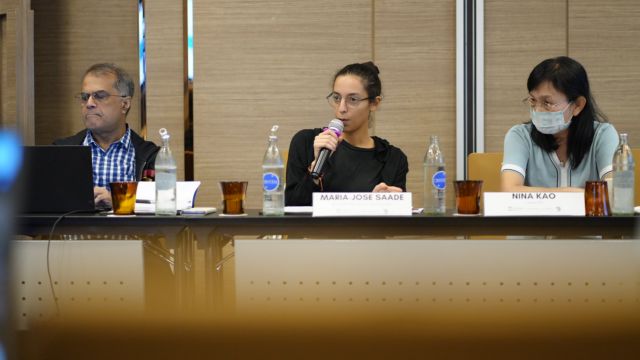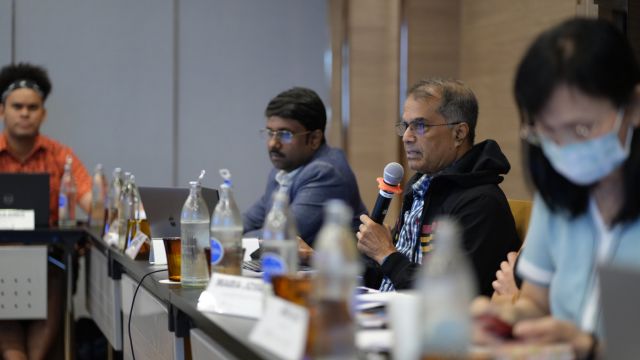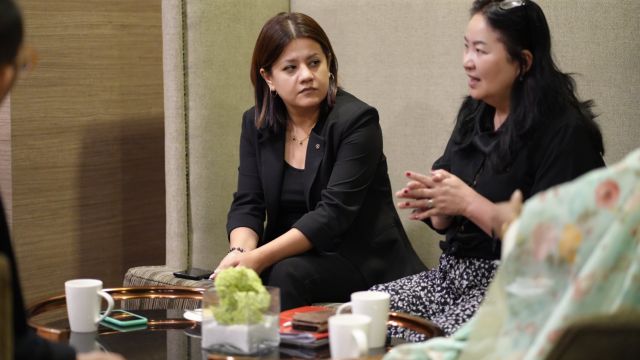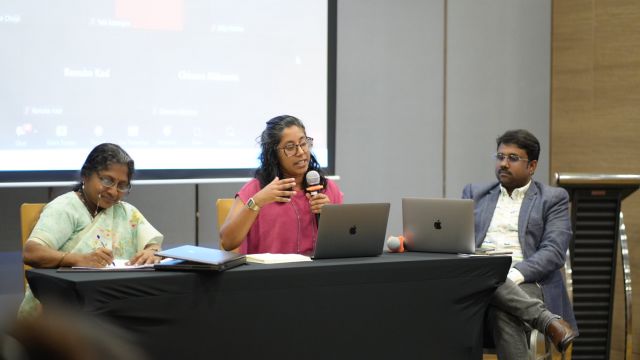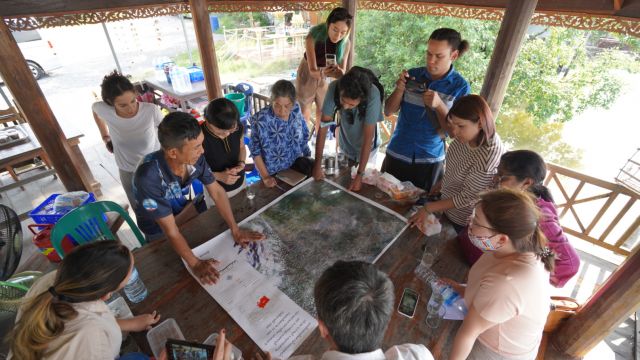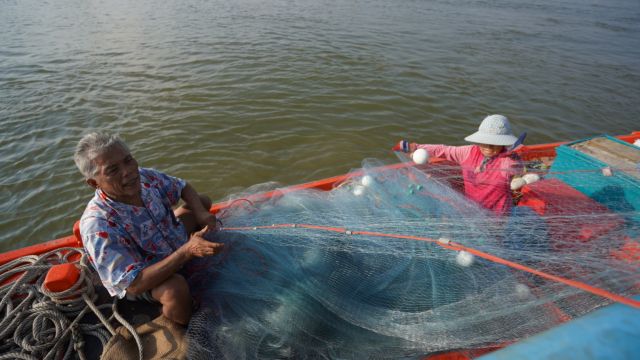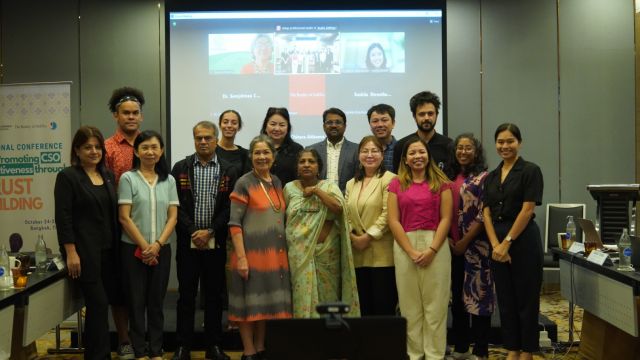In preparation for the 2022 Effective Development Cooperation Summit in Geneva, Switzerland in December, civil society organizations (CSOs) from across the Asia-Pacific gathered for a two-day conference to discuss the state of enabling environment for CSOs in the region and the Triple Nexus approach to conflict.
Organized by the Asia constituency of the CSO Partnership for Development Effectiveness (CPDE), Reality of Aid-Asia Pacific (RoA-AP) and Sustainable Development Foundation (SDF), the activity was titled “Regional conference on promoting CSO effectiveness through trust building” and brought together 23 participants in Bangkok, Thailand and 25 online participants.
“The peoples of Asia-Pacific face many worsening crises that demand cooperation among governments, the private sector, and CSOs. Unfortunately, what we are seeing across the region are increasing hindrances to CSOs’ performance of their vital role in achieving the Sustainable Development Goals,” said Sarah Torres, RoA-AP coordinator.
“The shrinking civic space in the region is an important issue that needs immediate discussion and action, and trust, from all development actors. It imperils all development actions aimed at achieving the United Nations’ Agenda 2030,” Torres added.
Aside from tackling the state of CSO enabling environment in the region, the conference held a workshop on CSOs’ main demands for improving this environment. The workshop groups highlighted the indispensable role of CSOs in development actions, and the need for governments and the private sector to trust CSOs’ adherence to this role based on development effectiveness principles and objectives.
The workshop output will form the Asia-Pacific CSOs’ Key Asks which will then be presented by CPDE to the Global Partnership for Effective Development Cooperation’s 2022 Effective Development Co-operation Summit, and will inform the network’s engagement in other platforms.
The two-day conference featured discussions on trust-building among development actors. On the first day, a representative of the Thai government and of the United Nations Economic and Social Commission for Asia and the Pacific or UNESCAP participated, highlighting the importance of continuous communication towards common goals in building trust.
Mrs. Rungthiwa Suddan of Thailand’s Department of Women’s Affairs and Family Development, under the Ministry of Social Development and Human Security, shared the agency’s contributions to meeting SDG Number 5, on gender equality, in which cross-sectoral coordination plays a key role.
For her part, Ms. Sara Libera Zanetti, 2030 Agenda and Voluntary National Review Specialist of the UNESCAP, recognized CSOs’ ongoing discussions and demands about the shrinking civic space and tackled how the intergovernmental platform seeks to widen and deepen CSO engagement.
Citing advances in the Asia-Pacific Regional CSO Engagement Mechanism or APRCEM, Zanetti said that building trust requires time and sustained communication among partners. “We have to be patient as we advocate for changes in the way stakeholders are engaged. The process is not just about informing or consulting them, but empowering them,” she said.
The conference also featured a discussion and a workshop on the localization of the Triple Nexus approach, which highlights the combination of humanitarian, development and peace actions in addressing the root causes of conflict, even as humanitarian actions provide immediate relief to communities facing conflict.
“In seeking to address the root causes of conflict, the Triple Nexus is a promising approach that makes necessary the participation of all development actors. The proof of the pudding is in the eating, however, and the test of the Triple Nexus is in the local contexts of conflicts and states of fragility. Here, again, the role of CSOs and other development actors is crucial,” Torres stated.
In the afternoon of the first day of the conference, the Bangkok participants were accompanied by Mrs. Ravadee Prasertcharoensuk of SDF to a fishing community in Phetchaburi, where local leaders discussed their research and advocacy work in relation to fighting water pollution and adapting to climate change.
“This and other communities in Thailand are proof of the important role played by CSOs in empowering communities and promoting development. Here, the CSO strengthened the community’s capacities to implement projects that address their needs. Now, the community is leading the projects all by itself, with the CSO providing assistance when needed,” Prasertcharoensuk said.

